In a widely-shared New York Times article bluntly titled “Why You Will Marry the Wrong Person”—the author, Alain de Botton, presents the idea that we need to shift our views about what love is and what marriage should and can be:
“The good news is that it doesn’t matter if we find we have married the wrong person.
We mustn’t abandon him or her, only the founding Romantic idea upon which the Western understanding of marriage has been based the last 250 years: that a perfect being exists who can meet all our needs and satisfy our every yearning.
We need to swap the Romantic view for a tragic (and at points comedic) awareness that every human will frustrate, anger, annoy, madden and disappoint us — and we will (without any malice) do the same to them. There can be no end to our sense of emptiness and incompleteness. But none of this is unusual or grounds for divorce. Choosing whom to commit ourselves to is merely a case of identifying which particular variety of suffering we would most like to sacrifice ourselves for.”
The point isn’t to get you down and pessimistic about love—there’s no use in moping around about it.Instead, as Botton’s article emphasizes, it is more important than ever for us to focus on practical day-to-day aspects of collaboration in a relationship. It is easy to get bogged down in lofty notions of love, but when push comes to shove, happiness comes from compromises and adjustments, working to be compatible as a team and not striving for an unattainable “fairy tale couple” ideal.
One tip for living with your partner is to pause and look at disagreements from a different perspective, as Michelle Brody, PhD, explains in Stop the Fight! How to Break Free From the 12 Most Common Arguments and Build A Relationship That Lasts.
The Proving Your Point Fight
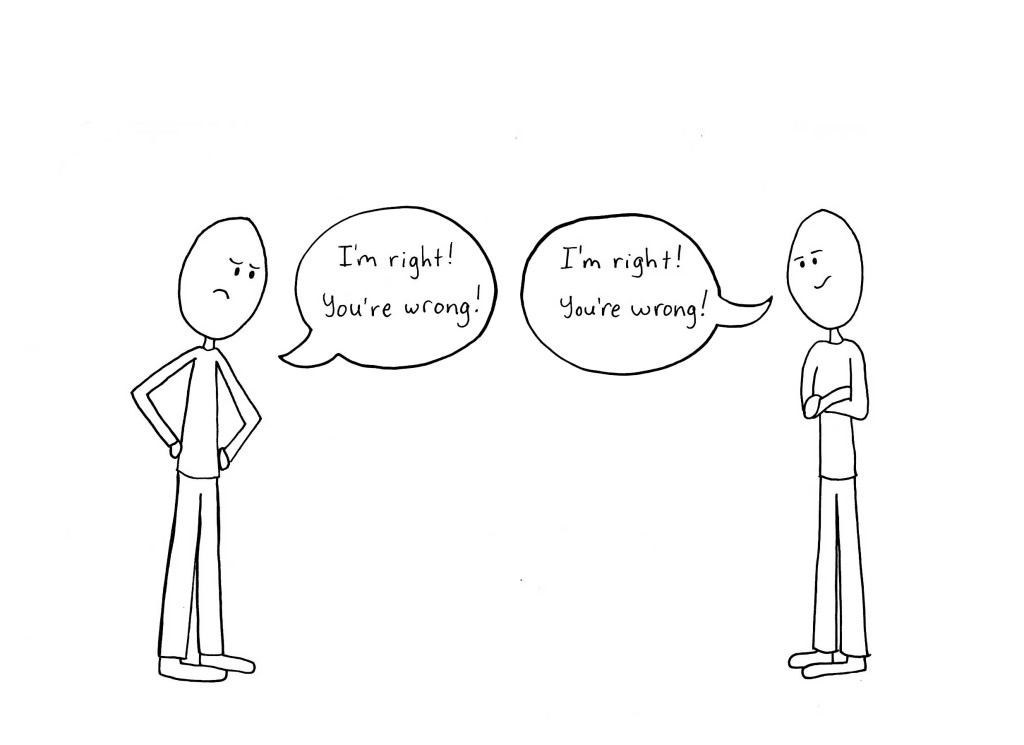
You’re trying to convince your partner that your point of view is correct. And they are trying to convince you that their point of view is correct. It’s a back and forth, each person insisting on the fact that the other is wrong.
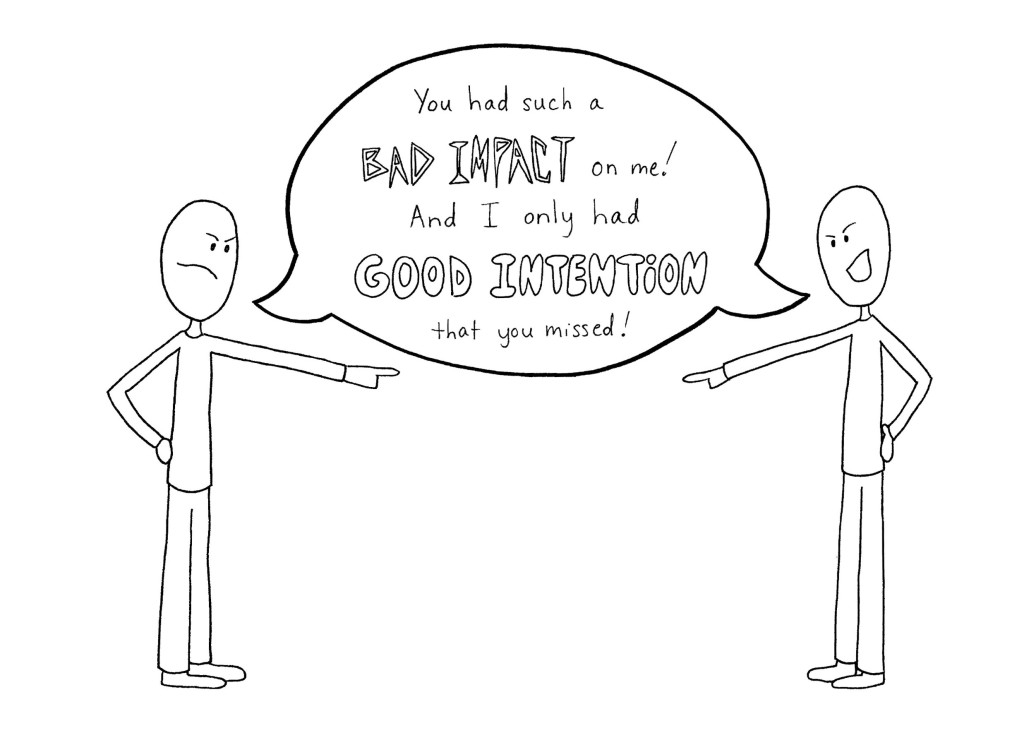
The way to solve it? Realize that impact does not equal intent. 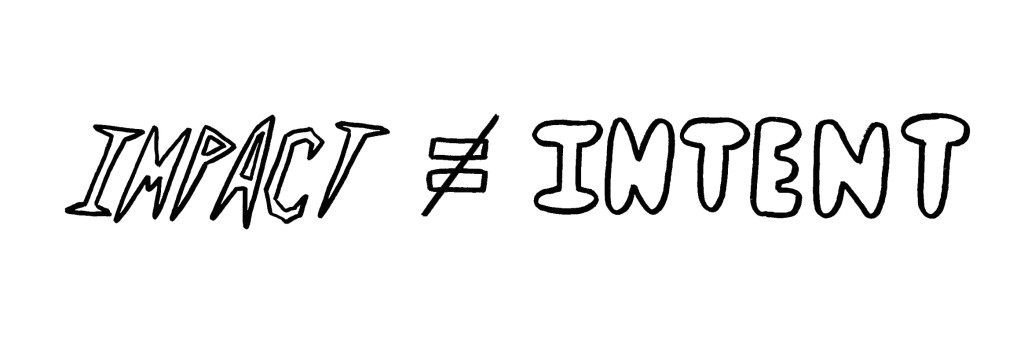
There is a misunderstanding going both directions. You both have good intentions, but unintentional bad impacts are causing a conflict. Recognize that both of you are imperfect: you have good intentions with bad impacts. Take a moment to look for your partner’s good intentions, and allow yourself to recognize your own bad impact. 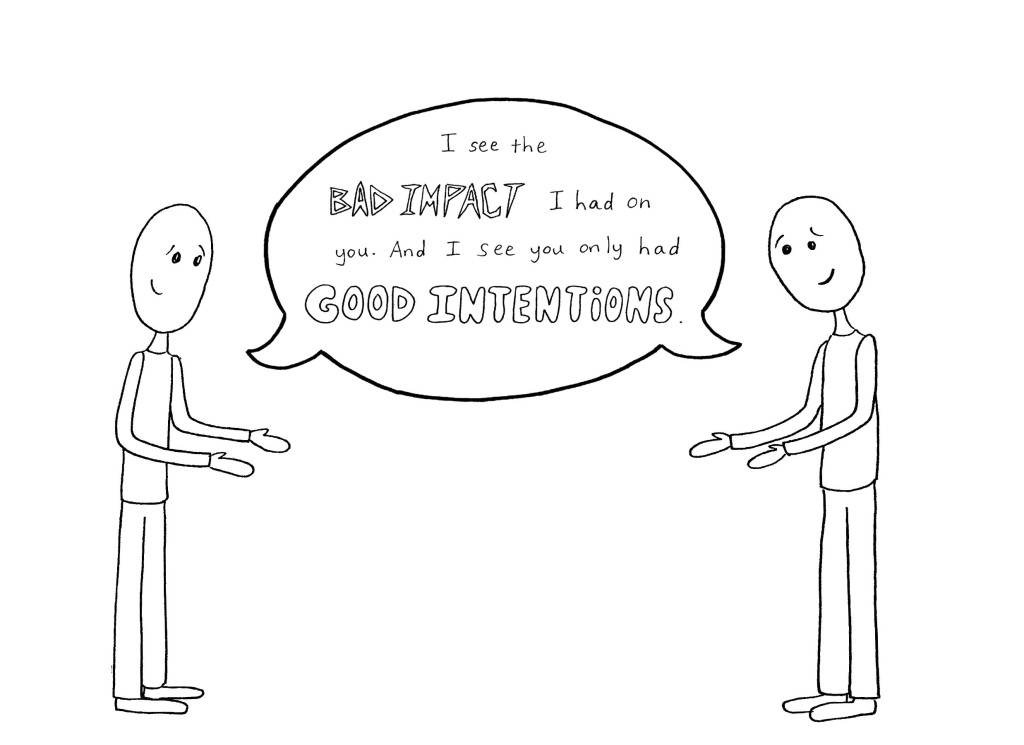
By taking responsibility for unintentionally hurting your partner, and learning what their true intentions are, you are on your way to sorting out the problem in no time.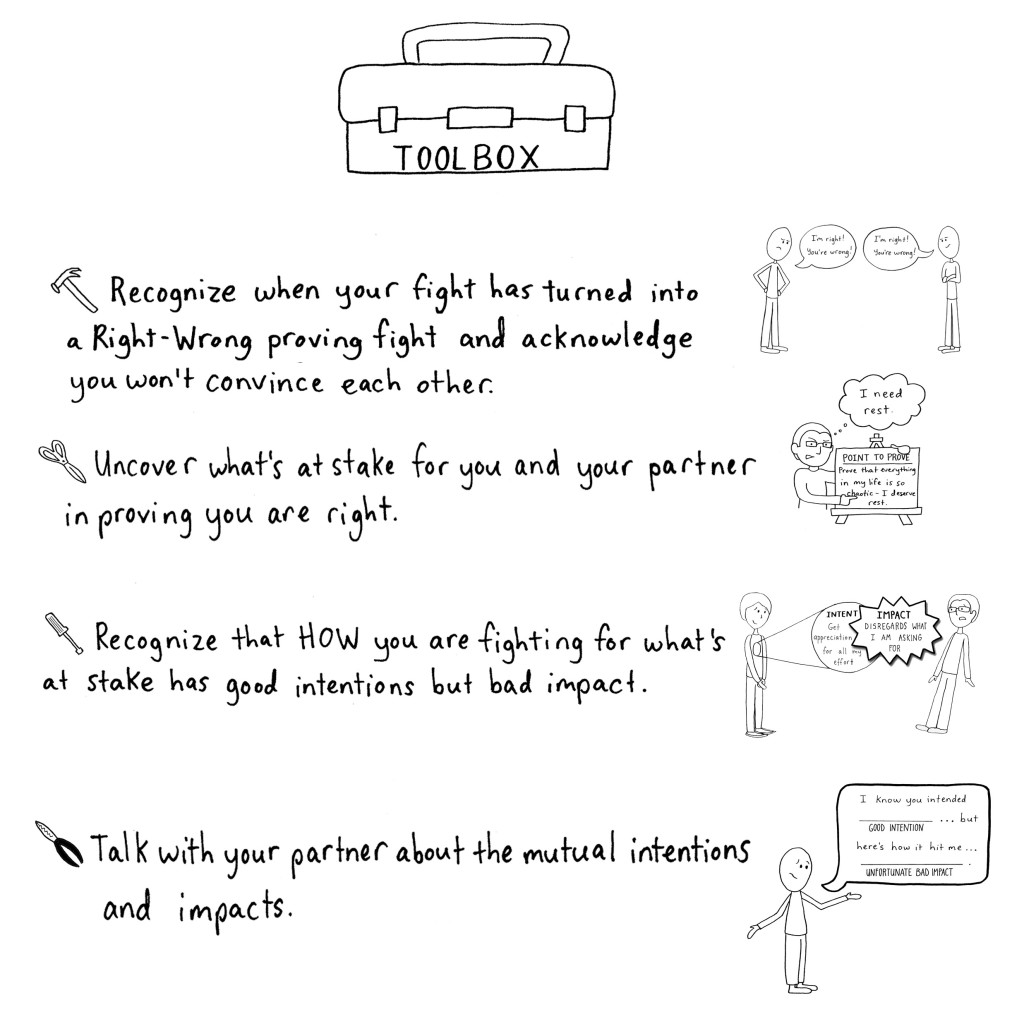
This type of civil interaction is what Helen McGrath, PhD and Hazel Edwards, M.Ed, authors of Difficult Personalities: A Practical Guide to Managing the Hurtful Behavior of Others (and Maybe Your Own) would call “problem solving negotiation,” where the aim of both partners is to achieve a win-some-and-lose-some situation where you can both make some compromises based on understanding the others’ wants and needs.
To further manage a conflict constructively, you should:
-Jointly define the conflict as mutual, using language like “We don’t seem to be seeing this in the same way.”
-Jointly define the conflict as small and specific. Instead of claiming that you and your partner can’t get along, focus on the specific issues at hand and work at resolving them step-by-step.
-Stay calm and manage your angry and frightened feelings. Recognize that angry or anxious feelings will likely lead to a poor handling of conflict, so get your feelings under control before you get overwhelmed, or take a breather before discussing them with your partner.
-Focus on the problem, not the person. Focusing the discussion on your partner’s character or past behavior will not solve the issue at hand.
Just because conflicts may pop up in your marriage doesn’t mean your partner was a bad choice! Learn to compromise and respect each other and form an even stronger team.
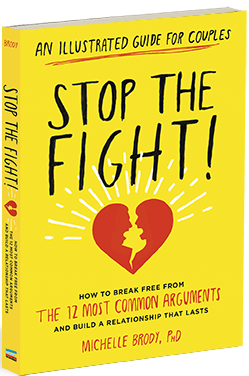
For more step-by-step descriptions of and solutions to common arguments (and more cute drawings!), read Stop the Fight! How to Break Free From the 12 Most Common Arguments and Build A Relationship That Lasts
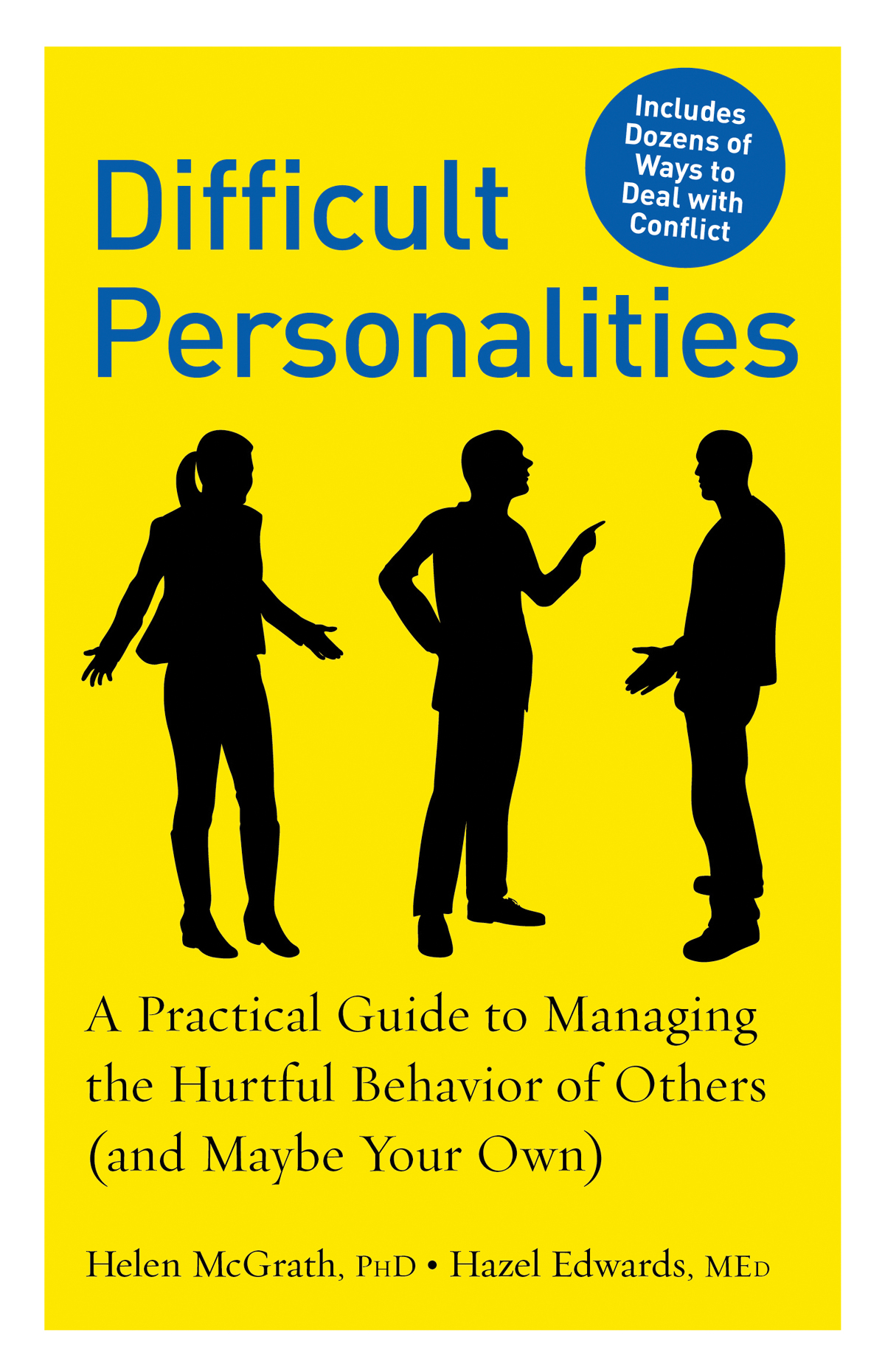
For additional steps on how to resolve conflict and get along better in any situation, from home to the workplace, check out Difficult Personalities: A Practical Guide to Managing the Hurtful Behavior of Others (and Maybe Your Own)</em>.





One Response to Making the Most of an Imperfect Relationship